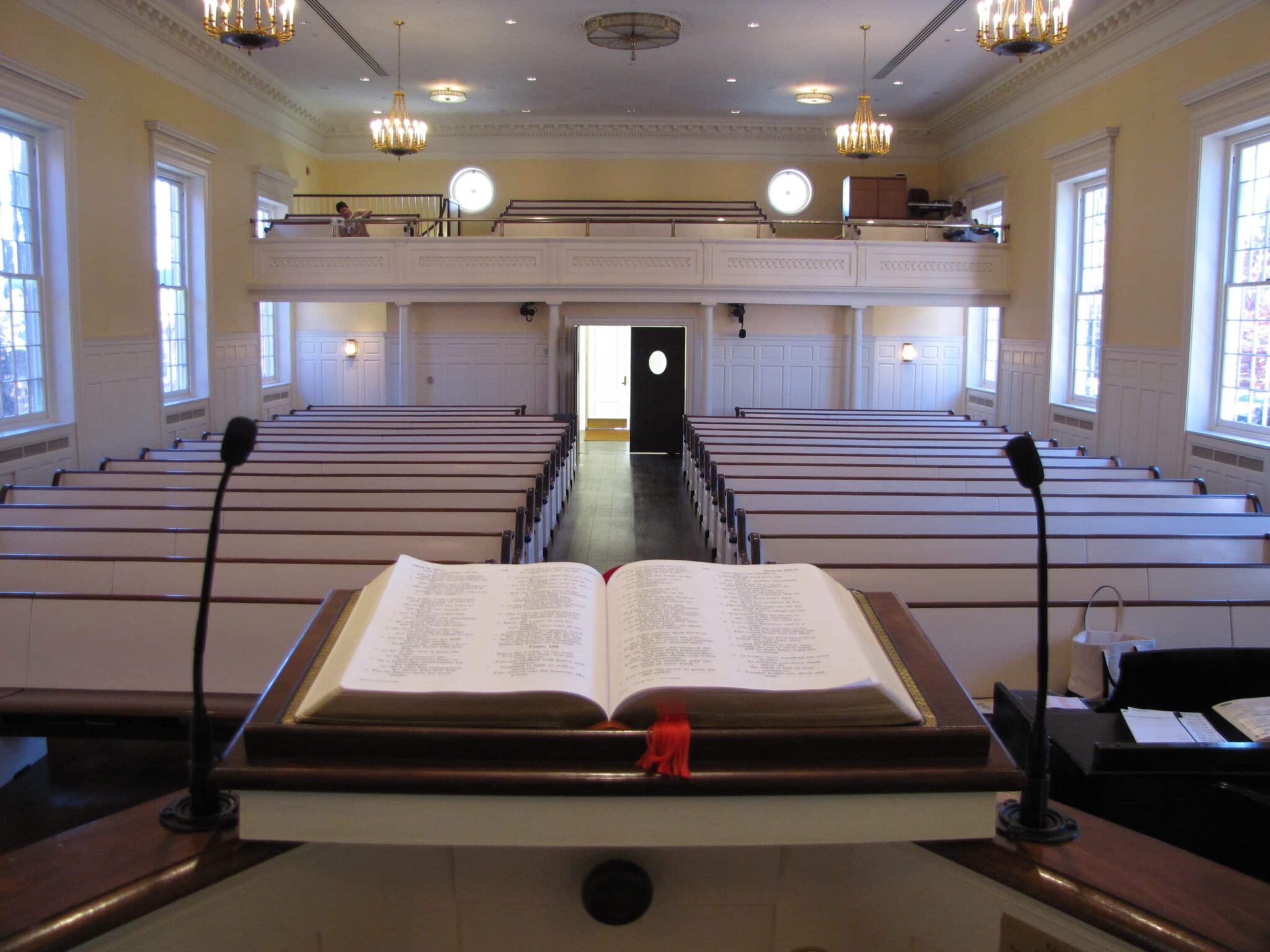Expository preaching is a common practice in most Reformed churches. This is often made clear on a doctrinal statement or somewhere on a church’s website. Our church website has an introductory video explaining some of the things to expect when visiting our church, one of which is expository preaching. Perhaps your church places a public emphasis on this too. Have you wondered why? Expository preaching may be something new for people depending on the kind of church they grew up in.
I grew up in Independent Missionary Baptist Churches where it was a topical sermon every Sunday. The preachers did not exposit a particular passage of Scripture but had an idea of what they wanted to address and found Scripture to support their thought. It’s a fair question to ask why topical preaching is not the proper way to handle God’s Word. Some even get upset when told this kind of preaching is not faithful to the Word. I pray that this article is a help to you in discerning this topic.
I do need to state from the start that there is topical, expository preaching that is good and certainly faithful to the Word of God. Even I have paused my normal practice of preaching through a book of the Bible to preach a series on a given topic. For example, I preached a series on Systematic Theology at our church a few years ago, and each Sunday, of course, was a different text of Scripture.
There are different methods of preaching expositionally. For example, there is sequential preaching (preaching through a book of the Bible), topical preaching (choosing a theme from Scripture; e.g., humility, worship, etc.), polemic preaching (preaching against a heresy), sectional preaching (preaching a section out of a book), doctrinal preaching (doctrines of grace, attributes of God, etc.), biographical preaching (e.g., study of Abraham or David).
There are other methods in addition to these above, but this helps to give an understanding of the different ways to preach expositionally. So, what do I mean when I say that topical preaching is not faithful preaching? Here is an illustration of the difference:
A while back I had listened to a sermon from a preacher in our area at the suggestion of another, and his sermon was on the topic of humility. He preached for 45–50 minutes on this topic and only read portions of Scripture as those passages had relevance to what he was saying. There was no one particular passage used. He read a number of passages dealing with humility and walking humbly before God but did not allow any particular passage to speak to the people of God about how to cultivate humility in their own lives. It’s one thing to say, “you must do, you must do” and use Scripture to support your thought, but quite another to expound a passage in context and allow that passage to demonstrate how we may carry out God’s command with the right attitude.
For example, if this man wanted to preach to the people about walking humbly before God, he could have gone to Philippians 2:1–11. In this passage the Apostle Paul is calling for the church to walk in unity, and to do that each person must not be selfish, conceited, or looking out for their own selves. They are called by Paul to “regard one another as more important than yourselves” and not to look out for their own interests “but also for the interests of others.” Paul desires in this passage the church to be united, and he gives commands for how the church is to carry this out. The question then comes, “how do we cultivate that selfless attitude in the church for them to carry this out?” That is the intent of the next set of verses.
Paul then uses the ultimate example of Christ, the Sovereign, Glorious King, who willingly takes the form of a servant and becomes obedient to the Father to carry out His work of redemption. If the most supreme of all willingly sets aside His own divine prerogatives for the glory of His Father and the benefit of others that they may be saved, who are we to think more highly of ourselves that we must be served? See, in this text, Paul sets forth his desire for the church, the commands of carrying out this desire, and how the church cultivates the selfless attitude to serve one another by looking to Christ. Being reminded of all that Christ accomplished on behalf of sinners, and reminded that He did so willingly having no obligation to anyone, indeed by the Spirit of God, moves our hearts and affections to please our Lord by carrying out His commands. This is the great benefit of the preacher drawing out of the text its meanings and applications!
Some may object and say, “I’ve heard good topical sermons where the truth of God was set forth, etc.” It is wonderful that God’s truth was upheld, but that doesn’t mean that the text itself was handled faithfully. Dr. Steve Lawson would say to us in class, “If we believe that the Bible is the Word of God, we can’t help but be expositors.” Consider this statement. The Bible is God’s word. Each book of the Bible is written to a specific audience with a specific intention by the author as he was moved and guided by the Lord to pen His words.
It is our duty as believers to first understand the intent of the author as we are preaching and teaching so we may confidently say, “Thus says the Lord.” We have no right to use God’s word as simply a launchpad or a support to our own ideas, but as MacArthur says, “The meaning of the text is the text,” and again as Lawson states, “The preacher has nothing else to say apart from the Word of God.” We believe that Christ speaks to His people through the instrument of the preacher. He is the worship leader, etc. In that scenario, it’s as if Christ is standing above the man in the pulpit speaking to His own, and the Holy Spirit of God applying His words to the hearts of the people. This is the first and foremost reason that the man in the pulpit should strive to handle Christ’s Word faithfully. Having this understanding is why Reformed people, especially, consider the preaching of the Word as the high point in our worship, because Christ is speaking to His people!
There are also other benefits for the preacher and the congregation to desire expositional preaching. Because the natural consequence of expository preaching is sequential preaching, the preacher must deal with each passage, even the hard ones. This helps him to grow as he studies and seeks the Spirit’s guidance and wisdom, and it helps the congregation to grow as the hard passages are expounded to them. Also, with sequential preaching, each week the congregation can see the continuity of the previous week’s text and theme as the preacher takes them into the next passage. This helps keep the context in the minds of the people, as well as keeping the flow of the entire book before the people. If we desire to know what God said and be confident of God’s intent in His statements or commands, then expository preaching is what we should all desire as preachers and as listeners of the Word of God.
Sola Scriptura!




